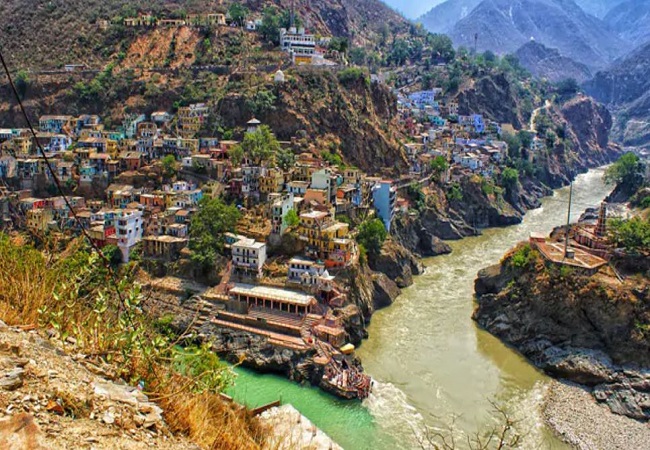New Delhi: Uttarakhand is perhaps the most beautiful state in India. Although, the scenic beauty is just an attractive exterior to the charming mythological past of the district. It is a land where mythological tales find their roots, be it the footprint at Har-ki-Pauri ghats in Haridwar or the stories of the Laxman Jhoola. Swirling with various outdoor adventures, the Himalayan escapades, striking wildlife, and the sanctity of shrines, This state sets the path to spectacular pilgrimage sites where tales from Hindu epics are set.
Though, Uttarakhand is also well known for the Chipko environmental movement and other social as well as political movements.
The government had established an adapted version of the Uttar Pradesh Zamindari Abolition and Land Reforms Act in 2003 to stop the exploitation of farming land in provincial areas. Individuals from outside the state could purchase just 500 sq meters of rural land for residential purposes, and the cap was later decreased to 250 sq meters in 2007.
In case the land is being purchased for business purposes, special permission from the state authority needs to be taken. In case the land is being purchased for rural and green use, permission is needed from the district magistrate.
In September 2011, the HC brought down the land reforms in the state under which outsiders were denied from purchasing more than 250 square meters of agribusiness land. A bench of HC decided that every one of the citizens of the nation would now have the option to purchase up to 12.5 acres of agribusiness land in the state under the Land Ceiling Act.
Recently, in the approach the expansion of urban local bodies with the expansion of abutting rural areas inside their limits, numerous activists had also demanded stringent rules to save townland that would fall under city areas. Individuals have asked the public authority to present rules on the lines of the Himachal Pradesh Tenancy and Land Reforms Act, to check the exploitation of land by outsiders.
The native individuals have serious worry over the hazard of unauthorized construction having attained alarming proportions in the state, the high court had coordinated the state government not to allow the use of land recorded in revenue records as agricultural land to be changed into group housing complexes taking into consideration the intense shortage of farming land in Uttarakhand.
Companies or governments are promising jobs and social services to communities, yet they seldom materialize. Jobs might be copious during the beginning phases of a task (for clearing land or building infrastructure) but will hardly translate into long-haul work.
This decision will affect the way of life, language, and upcoming generation of locals. Individuals fear losing their character and becoming just one more state in North India. Talking about the crime percentages, the state is witnessing a slight surge in criminal activity, it has certainly something to do with new land rules, as the locals are blaming outsiders.
The natives have complained about conversions and illegal construction of churches & mosques. Illegal Bangladeshi immigrants have been involved in rapes in places like Shrinagar of Uttrakhand. These immigrants sweep into the houses or take over the lands of natives who have left the villages for the job.
People over the internet has been showing their pain and demanding a new set of law to restrain such activity and securing the rights of the local people. Twitter is playing a vital role in amplifying the voice of people, as you can see a number of tweets & posts with #उत्तराखंड_में_भू_कानून demanding the law.
A small story to understand the situation
Once upon a time, there was a huge and untouched forest that stretched in its vastness from towering, snow-clad mountains in the west to deep blue ocean waters in the east. It was crossed by giant rivers — some swirl and turbulent, others deep and placid, but all clean and full of life. The forest, too, was full of life — ancient and towering trees, myriad vines and air plants, thousands of species of insects, hundreds of varieties of birds, and a bewildering variety of other animals. It was a world of beauty, a place of adventure and never-ending experimentation and change.
Outsiders came from other lands far away. The forest people loved their forests, but now the outsiders wanted nothing more than to destroy the forest and change it into a very different world. At first, they enslaved some of the people of the forest and killed many others. The people of the forest fled. But eventually, the outsiders reached all comers of the land, and now, instead of killing and enslaving, they taught the remaining forest people to be like them — to hate the forest and its creatures.

